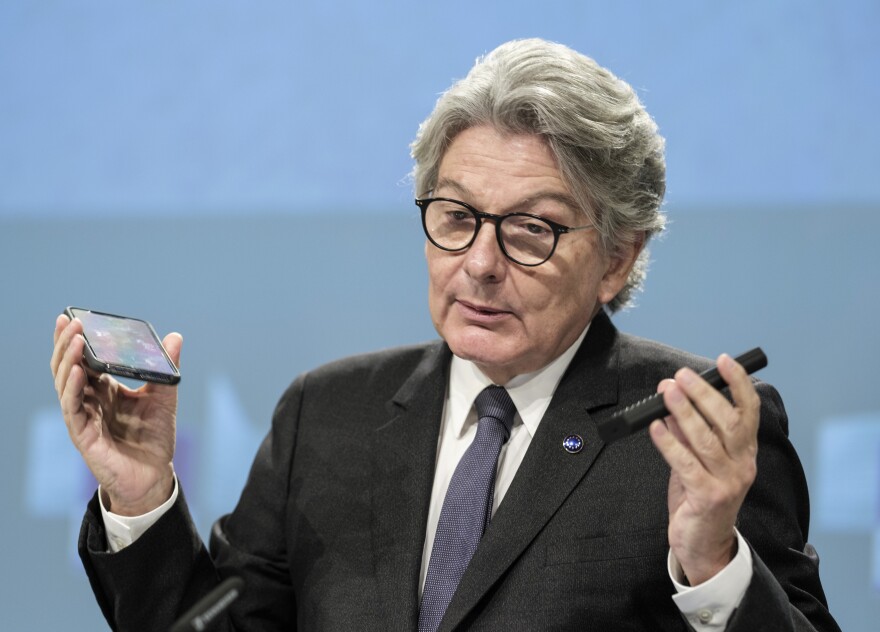Updated October 4, 2022 at 1:02 PM ET
Those in the European Union won't have to spend much more time rummaging around for a charger.
The European Parliament voted overwhelmingly Tuesday to require cellphones and handheld electronic devices sold in the EU to have a USB-C charging port — a move likely to affect Apple, which uses Lightning chargers for its iPhones.
By the end of 2024, tablets, digital cameras, video game consoles, headphones, portable speakers, e-readers, portable navigation systems, keyboards, mice and earbuds sold in the EU will need to be equipped with the port.
"The common charger will finally become a reality in Europe," Parliament official Alex Agius Saliba said in a statement. "We have waited more than ten years for these rules, but we can finally leave the current plethora of chargers in the past."
Laptop manufacturers have until 2026 to implement the universal charging port in their products.
"No more bundles of different chargers in our drawers," Margrethe Vestager, executive vice president for A Europe Fit for the Digital Age, said in June. "One common charger is a real benefit to us as consumers."
A universal charger is expected to have environmental benefits
The EU hopes a universal charger will reduce carbon dioxide emissions and prevent waste, while also eliminating the costs of buying multiple chargers for different devices.
The change is projected to save European consumers about $250 million a year, officials say.
Chargers that were either unused or disposed contribute to roughly 11,000 tons of e-waste each year, according to the commission.
The universal charging requirement could impact major tech companies such as Apple, which has a unique Lightning connector for iPhones, some iPads and other mobile products.
Apple did not immediately respond to a request for comment, but the company has previously spoken against the move.
"We remain concerned that strict regulation mandating just one type of connector stifles innovation rather than encouraging it, which in turn will harm consumers in Europe and around the world," a company spokesperson said in a statement last September.
Copyright 2022 NPR. To see more, visit https://www.npr.org.








